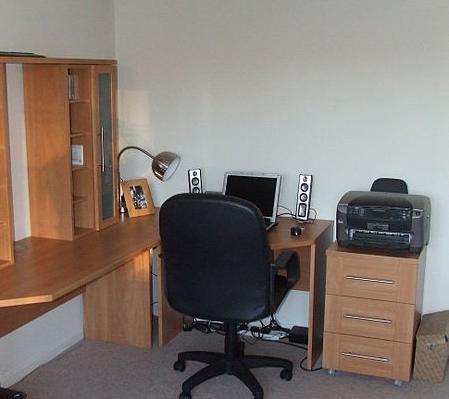
Summary: Subjects in a research study who were allowed to work from home were happier and more productive.
Key Take Aways:
- Flexible work schedules may make organizations more productive and happier places to work.
- Happier workers tend to be more productive and quit their jobs less often, which boosts business results and saves money.
Home workers studied in a Stanford business school research project were both happier and more productive. Stanford economics professor Nick Bloom and several colleagues examined workers at CTrip, a large Shangai company.
For ten months they studied call center workers who were based at home and in the office in cubicles. The home workers were found to be more productive because they answered more calls and took shorter breaks. They also used less sick leave, and quit their jobs less often. Additionally, but of no less importance, they reported being happier than their office counterparts.
Because employee turnover is costly to the company, allowing some workers to be located at home actually saved the company a significant amount of money. Each worker who quits cost the company about the same as their annual salary in recruitment, interviews, training and coming up to speed on being productive. That said, working from home is not for everyone. The researchers found the home workers who reported being happier and that were more productive also were the ones who said they wanted to work from home. In other words, there was a self-selecting aspect to the situation, meaning that some workers might identify themselves as the ones who don't want to work from home, and they may be less likely to be happy and productive as home workers. Some people are lonely working from and prefer to work in an office so they can be around more people.
So the conclusion to be drawn from the study is that offering flexible work schedules is likely to make workers happy and productive, rather than insisting all of them must work in the office or from home. It was the younger workers who wanted to be in an office setting and the older ones who wanted the home situation.
"If people can work where they live, they are going to live in different places, The CTrip employees, many of whom come from rural China and have come to Shanghai to find work, would much rather be at home in the villages and working from there. We interviewed them and they want to do that. Flexible work, then, may not just be a gain for particular employees or companies, but potentially for society", explained Stanford economics professor John Roberts. (Source: Stanford)
Image Credit: Stubacca, Wikipedia